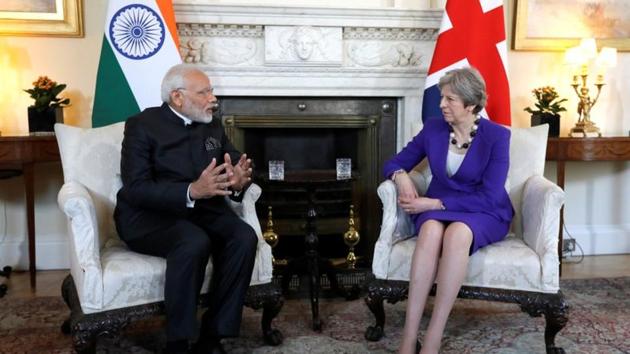UK student visas: A tough challenge for India-Britain relations
It may well be the case that one government department (Home Office) does not know what the other is projecting (an unabashed woo-India policy on trade), but if the Conservative government is to realise its dream of a ‘global Britain’ after Brexit, it needs some joined-up thinking in Whitehall and Westminster.
Britain’s Home Office — one of the top four offices of state — is considered the graveyard of several political careers, but when Sajid Javid, son of immigrants, was appointed the home secretary in April, there was much excitement and hope of change. To his credit, he has tried to distance himself from the set of policies put in place by his predecessor in the Home Office, Theresa May, who wanted to generate “a hostile environment” on immigration. But last Friday’s changes to visa rules have added to the tensions, already beset by a web of visa-related issues, between New Delhi and London. Including China, and not India, in the list of countries whose citizens are allowed less rigorous visa applications has caused consternation.

British ministers have often tried to explain away the more than 50% drop since 2010 in the number of Indian students going to study there to what they call “a perception issue”. Days before last week’s changes, Mr Javid himself attributed the row over international students to the same thing. The home office’s exclusion of India from the list of countries which are not required to undergo tough visa applications has been described as an insult at a time when the May government cannot stop itself from repeating that India is crucial to the UK’s economic future after it leaves the European Union in March 2019. India has already made it clear that freedom of movement of professionals and students would be a key issue in talks for a post-Brexit free trade pact. Ironically, it was Mr Javid who, as the culture secretary in 2015, had called for London jettisoning “outdated perceptions” about India.
India, and Indian students, have moved on. If fewer Indian students consider Britain as the first-choice destination for higher studies, the latest changes are likely to add to the perception that the country is no longer a welcoming place; Canada, Australia, the US and even some European countries are seen as more welcoming. Indian students, officials and even British universities have often complained about the arduous visa application process and post-study rules. Students are part of the complex visa-related web currently at the top of the India-UK relationship, reflected in the April visit of Prime Minister Narendra Modi, who refused to sign an MoU on the return of illegal migrants unless London extends to Indians the easier, cheaper and longer visa that London extends to Chinese citizens. The latest changes will harden postures in New Delhi. It may well be the case that one government department (Home Office) does not know what the other is projecting (an unabashed woo-India policy on trade), but if the Conservative government is to realise its dream of a ‘global Britain’ after Brexit, it needs some joined-up thinking in Whitehall and Westminster.



